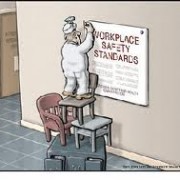Cafe Deducted Pay for Breaks Worker Was Never Allowed to Take
Natalie Cornelius was employed as a crew member in a café in Napier. She became concerned by her employer’s practice of deducting 30 minutes wages from her pay each day. This was allegedly to cover breaks which she is adamant she was never allowed to take.
Ms Cornelius tried to raise her concerns in writing and verbally however she says her employer inevitably reacted in a rude and belligerent manner and failed to address her concerns. Things got to a point where Ms Cornelius felt she had no choice but to resign.
Ms Cornelius subsequently raised a claim of unjustified dismissal, albeit constructively, by her employer, HPG Private Ltd (HPG). The claim was heard in the Employment Relations Authority in May 2016 where Authority Member Loftus agreed with Ms Cornelius that she had been constructively dismissed and awarded her the sum of $4,000 as compensation for hurt and humiliation.
In regards to the 30 minute deductions from Ms Cornelius’s pay each day for her breaks that she said were not taken, Member Loftus accepted Ms Cornelius’s calculations and awarded her $2,080. In all Ms Cornelius was awarded a total of nearly $12,000 for lost wages, inappropriate pay deductions, hurt and humiliation, plus costs.
Under recent changes to the Employment Relations Act, the duration and time of breaks is no longer strictly regulated. In the past, stringent rules governed how long rest and meal breaks had to be, and when they had to be given. For example, one 10-minute paid rest break during a work period of between 2 hours and 4 hours; one 10-minute paid rest break and one 30-minute meal break (unpaid unless agreed otherwise) during a work period of between 4 hours and 6 hours and so on. Now there are no specific rules for how long, or when, rest and meal breaks should be.
Employers and employees should bargain in good faith over the timing and length of breaks. All employers are required to provide employees with rest and meal breaks which give employees a reasonable chance during their work period to rest, refresh and take care of personal matters.
Under this legislation, some employers may be exempt from giving breaks. For example when employees agree to reasonable compensation in exchange for breaks, or where the employer cannot reasonably give the employee rest and meal breaks because the workplace environment or position make it impractical (for example, emergency medical staff, a sole charge customer service position, etc). However, the employer will always be required to compensate the employee if this situation arises. Compensation could be alternative time off equivalent to the missed break (i.e. finishing 15 minutes earlier but being paid until the end of the shift), or extra remuneration.









